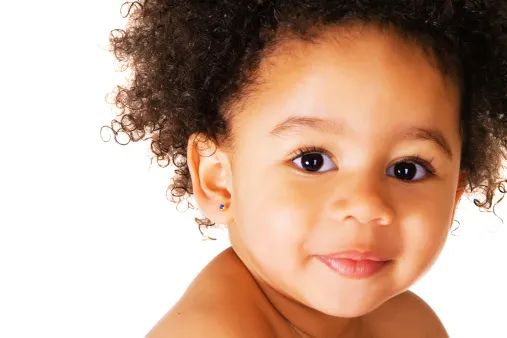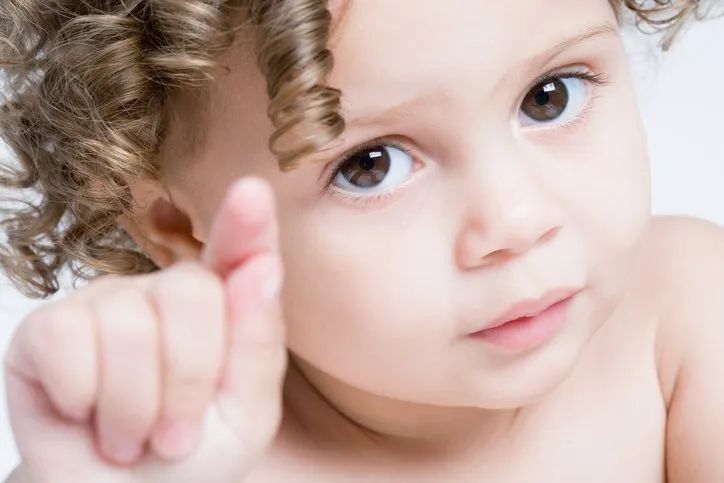The Why’s and How’s of Teaching Your Child Courtesy and Respect
Unless you’re living under a rock, you’ve no doubt noticed our culture’s current trend toward discourteous and disrespectful behavior. Whether it’s something in the news (or fake news, as they say) or a more immediate source--such as the middle-finger brandishing driver that cut you off this morning--our daily lives (and our children’s) are filled with examples of rude, crude and thoroughly graceless conduct. From airplanes to college campuses, protests to tweets--the rudeness has gone rampant! I’m beginning to think anyone living under a rock might just have the right idea. But, what can we do to bring about change? As always--the best hope lies with our children.
“The child is both a hope and a promise for mankind.” ~ Maria Montessori

Children don’t come into this world hard-wired for ugly behavior. In fact, I believe it’s quite the opposite. Children are born with a natural inclination toward compassion, empathy and kindness but these seeds must be sown and nurtured if they’re ever going to take root.
"Knowledge can be best given where there is eagerness to learn, so this is the period when the seed of everything can be sown, the child’s mind being like a fertile field, ready to receive what will germinate into culture. But if neglected during this period, or frustrated in its vital needs, the mind of the child becomes artificially dulled, henceforth to resist imparted knowledge. Interest will no longer be there if the seed be sown too late, but at six years of age all items of culture are received enthusiastically, and later these seeds will expand and grow." ~ Maria Montessori
The benefits of teaching your child courtesy and respect go both outward and inward. Courtesy is more than a set of polite behaviors; it is a lens through which your child will learn to see the world. Through this lens, your child will also learn to respect himself and thus develop a higher self-esteem and happier, healthier relationships with others.

Your child was also born with an amazing ability to absorb information. For better or worse, she is soaking up everything she sees, feels, and hears. So teaching your child good behavior really comes down to what you, the parent or guardian, are modeling with your own behavior. Bearing this in mind, here are a few tips to help teach your child courtesy and respect:
1. You First
You are your child’s first and foremost teacher. Set a positive example (as much as humanly possible), starting with respect for others and yourself, courtesy, kindness, and forgiveness. Also, forgive yourself for any slip-ups--hey, nobody’s perfect! Apologize and get back on track. Your child will learn that, too.

2. Turn Up the Tolerance
There are a lot of different types of folks out there--different backgrounds, beliefs, and abilities. Your child is likely to notice and be curious. Answer his questions in an accepting tone. Show your child that differences are okay with you. Make it clear, through your attitude, that we don’t all have to march to the same beat to be accepted, respected, and understood.
3. Read the Signs
Help your child learn to read people’s emotional signs. Connect the facial expression and body language with the corresponding emotions. Encourage your child to pay attention to how others might be feeling and then show them, through your example, how to react with empathy and compassion.
4. Mind your Manners
It’s amazing how far a simple “please” or “thank you” goes toward making our daily transactions feel so much more civil! Teach your child the good-old-fashioned Ps and Qs, and watch the delighted responses happen. This goes for you, too. It’s really so little effort, just a few key words sprinkled in here and there, to make your whole environment take a major upswing in the courtesy department.
5. Lend a Helping Hand
Get your child (and yourself, obviously) involved in some kind of community service. Volunteer at your local animal shelter or charity. Or participate in community fund-raisers. Teach your child that it’s not always “all about you.” If everyone in your community put a little more “give” into their daily lives, imagine what a courteous world we’d all live in. A better future starts now, and it starts with our children.
“Directing our action toward mankind means, first and foremost, doing so with regard to the child. The child, that ‘forgotten citizen’, must be appreciated in accordance with his true value. His rights as a human being who shapes all of mankind must become sacred, and the secret laws of his normal psychic development must light the way for civilization.” (Education and Peace)




















